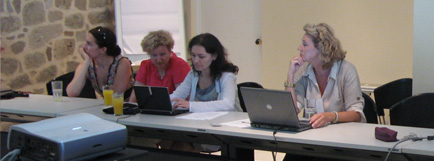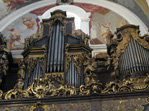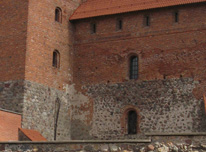MOBILITY ORGANIZED
6th Mobility Visit, Cluj-Napoca
ROMANIA, 15-18 April 2011
The sixth mobility visit in Cluj-Napoca was organized by Bridge Language Study House, the Romanian representative of ADHER Project.
In total, we welcomed 5 visitors from Turkey, 5 from Italy, 4 from Greece, 4 from Lithuania and 3 from Slovenia.
The program started on the first evening of the mobility, when almost all of the visitors and organizers met for dinner and shared their experiences from the last 3 months.
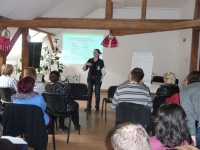
Cultural Seminar by Simona Bernat
(Enikő Gáspár)
The second day started with 3 cultural seminars. During the first seminar, Andreea Blaga presented information about Transylvania’s geographical and historical aspects. The second seminar was given by Gyöngyvér Pillich-Wright and gave an insight into village life in Macău and the surrounding area, including videos of different types of folk dances specific to the region. During the coffee-break, visitors had the chance to taste a very popular Romanian traditional cake, the “Kürtőskalács”, as promised during the first seminar.
The last seminar was given by Simona-Elena Bernat, of the Ethno-cultural Diversity Resource Centre in Cluj. The seminar was very interesting and active, it involved individual and group-based activities, brainstorming and the visitors own presentations
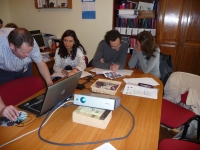
Moment from the project management meeting,
Bridge Language Study House.
(Enikő Gáspár)
Project managers were then invited to take part at the project meeting, while learners visited some of Cluj’s most memorable cultural heritages. The day ended with dinner at a local traditional restaurant
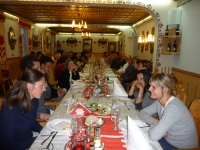
Dinner at the Agape Restaurant
(Enikő Gáspár)
The last day was also very interesting as it included a trip to 3 different places: the Turda Salt Mine, Rimetea village and a walk up to Coltesti Castle. The first stop was the Turda Salt Mine, a chance to explore one of the most fascinating underground worlds. Then it was on to Rimetea, visitors were shown traditional tools, furniture and clothing from the region at the local museum, then it was lunch – a good traditional meal and drinks, home-baked bread, spring water and “pálinka”.
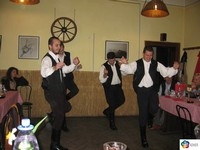
'Szarkaláb' Folk-dance Group
The day ended with a Traditional Evening, where local folk dance performers showed some of our dances and sang us old, almost forgotten songs.


